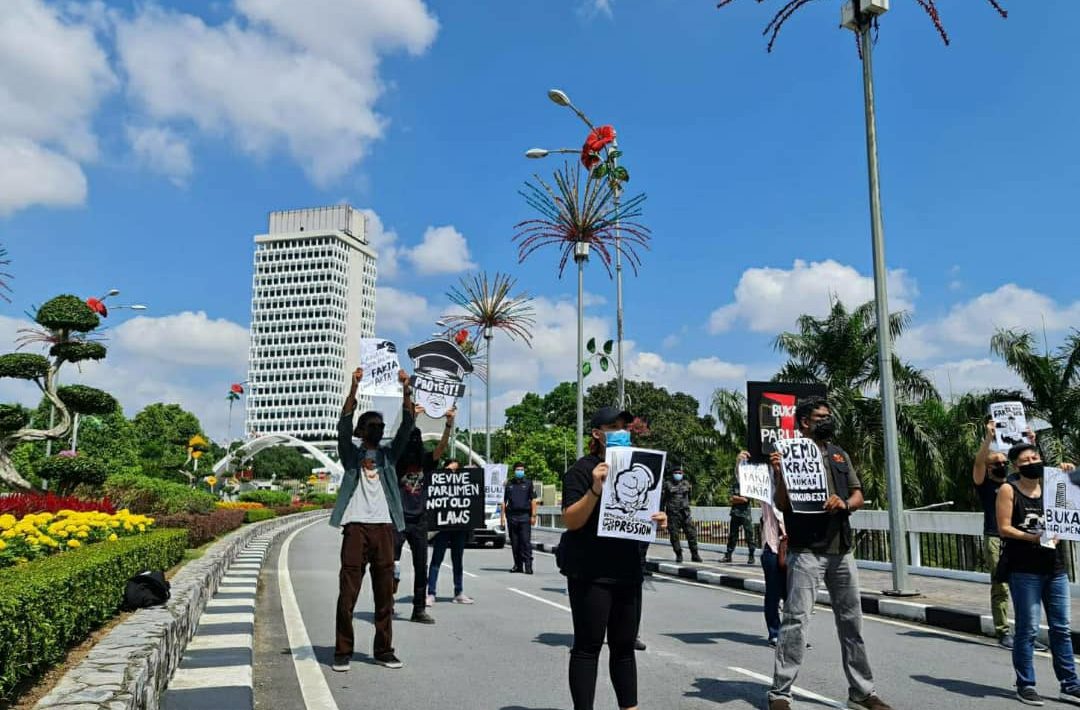15 MARCH 2021
PRESS STATEMENT
Amnesty International Malaysia is deeply alarmed at the emergency ordinance on “fake news” enacted by the government on 12 March. The law arbitrarily restricts freedom of expression and gives the government unfettered powers to silence the public.
“The draconian law clearly violates the fundamental right to expression enshrined in our Constitution. It has no place in Malaysia and the government must immediately withdraw the ordinance,” said Katrina Jorene Maliamauv, executive director of Amnesty International Malaysia. “The law appears designed to silence government critics and those with dissenting opinions. This is very dangerous. The government cannot be the sole arbiter of what is true.”
On 11 March, the government announced it is implementing beginning 12 March the Emergency (Essential Powers) (No. 2) Ordinance 2021, which provides for a RM100,000 fine and/or a three-year imprisonment term for the publication and distribution of “fake news” relating to Covid-19 or the emergency proclamation.
The law also gives anyone found to have published “fake news” a 24-hour notice to take down the said post or be liable to an RM100,000 fine. It allows the police, with a court order, to take “necessary measures,” to take down “fake news” and access computerised data, including passwords and encryption codes. In addition, it grants further sweeping powers including allowing authorities to prosecute both Malaysians and non-Malaysians for an offence committed outside of Malaysia, and protection of the government against suits and challenges against the application of the law.
Any limitation on the right to freedom of expression introduced in the context of the COVID-19 pandemic must be provided by a clear and accessible law, and should be necessary and proportionate for the protection of public health or other relevant legitimate purpose under international human rights law. Blanket prohibitions on the dissemination of information based on vague and ambiguous concepts, such as “fake news”, do not meet this test and are therefore incompatible with the right to freedom of expression.
These measures further risk having a chilling effect on the population and the media, leading to self-censorship out of fear of reprisals. Amnesty International has also documented instances in which such limitations imposed to suppress relevant information or to target critical voices, and not to protect public health.
“Instead of using overbroad and dangerous laws like this Emergency Ordinance, the best way to pre-empt negative consequences of “fake news” is for the authorities to build up a reliable and prompt system of accurate, accessible, evidence-based and trustworthy information – such as on measures being taken to protect public health and address the pandemic – that leads to increased trust by the general public,” Katrina said.
“Freedom of expression has been relentlessly under attack for the past year, and this emergency ordinance on fake news is one of the most serious infringements of this fundamental right,” said Katrina. “The government is essentially using its emergency powers to bypass Parliament and bring back elements of the problematic Anti-Fake News Act that was already repealed in 2019, only this time it is worse.”
The emergency ordinance joins a wide range of existing laws that already restrict freedom of expression in Malaysia, such as the Sedition Act, Printing Presses and Publications Act (PPPA), Film Censorship Act and Section 233 of the Communications and Multimedia Act (CMA). Amnesty International Malaysia continues to campaign for these laws to be repealed as part of its Unsilenced campaign.
“Despite assuring the public that the current state of emergency will only be used to control the spread of COVID-19, Prime Minister Muhyiddin Yassin has broken his pledge with the introduction of this ordinance on fake news,” said Katrina. “He must now immediately withdraw this ordinance and respect the rights of people in Malaysia to speak and express themselves.
In light of this alarming development, the wider state of emergency – which grants excessive and unchecked powers to the government – must also be reviewed, and urgently brought into line with international human rights law standards.
Background
The government declared a nationwide state of emergency on 12 January. Prime Minister Muhyiddin Yassin said the move was necessary to combat the spread of COVID-19. The declaration, which has been strongly criticised by members of Parliament and civil society organisations, remains in effect until August. It provides the government near total immunity for acts taken under the ordinance, postpones the holding of elections and the sitting of Parliament and state assemblies, and grants broad powers to the military to engage in civilian operations among other wide powers. Amnesty International Malaysia views these measures as deeply inconsistent with international human rights law and standards.


